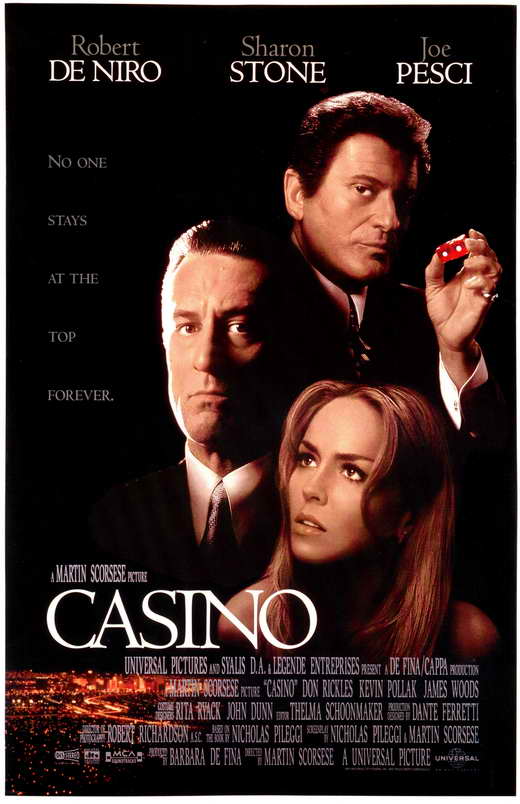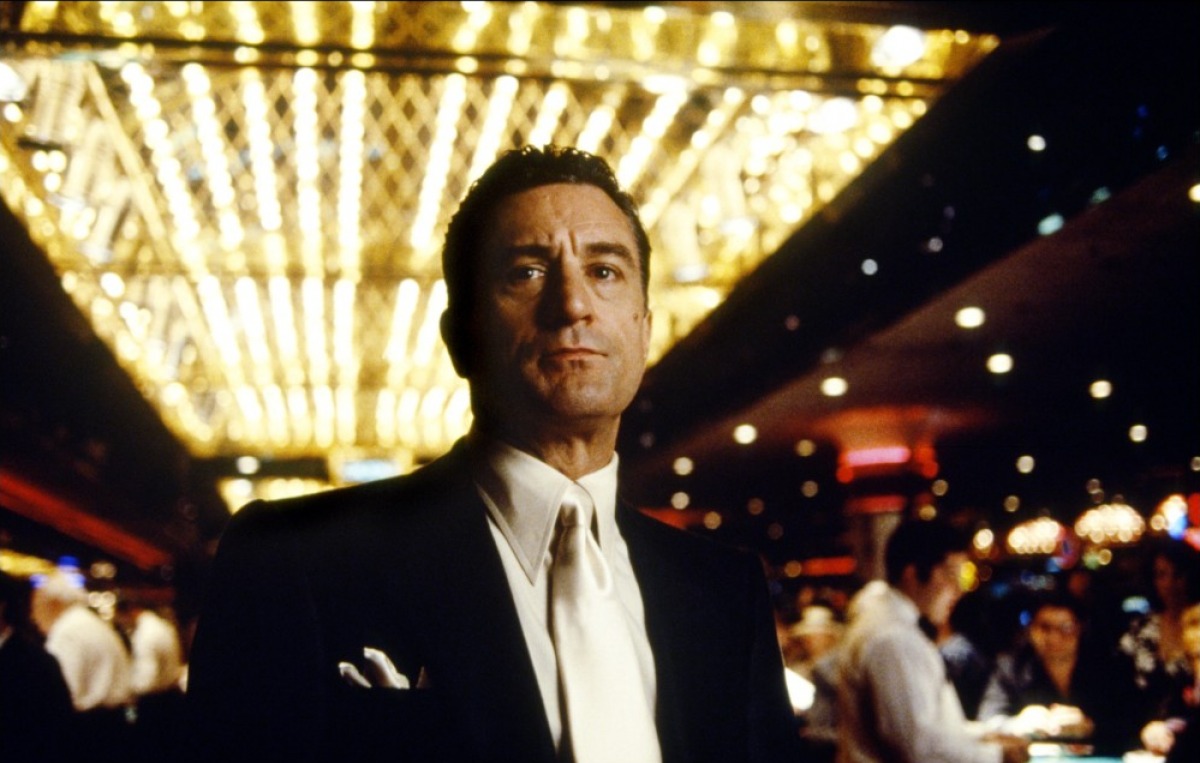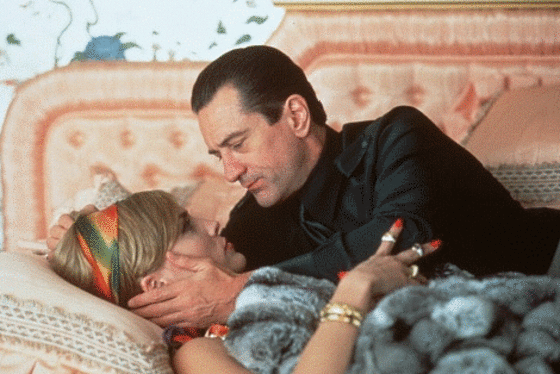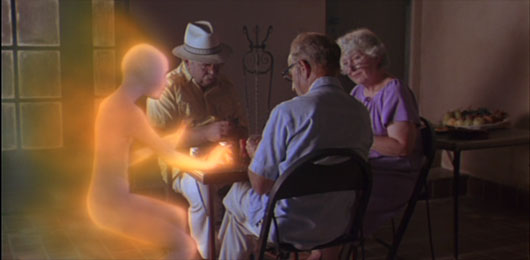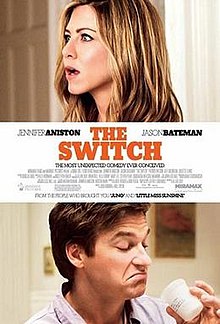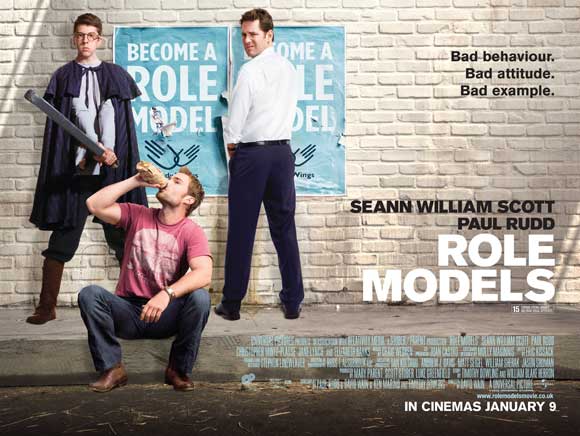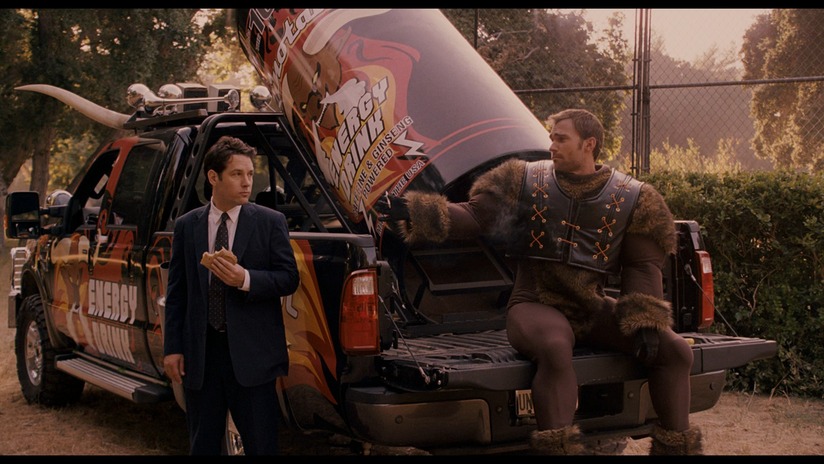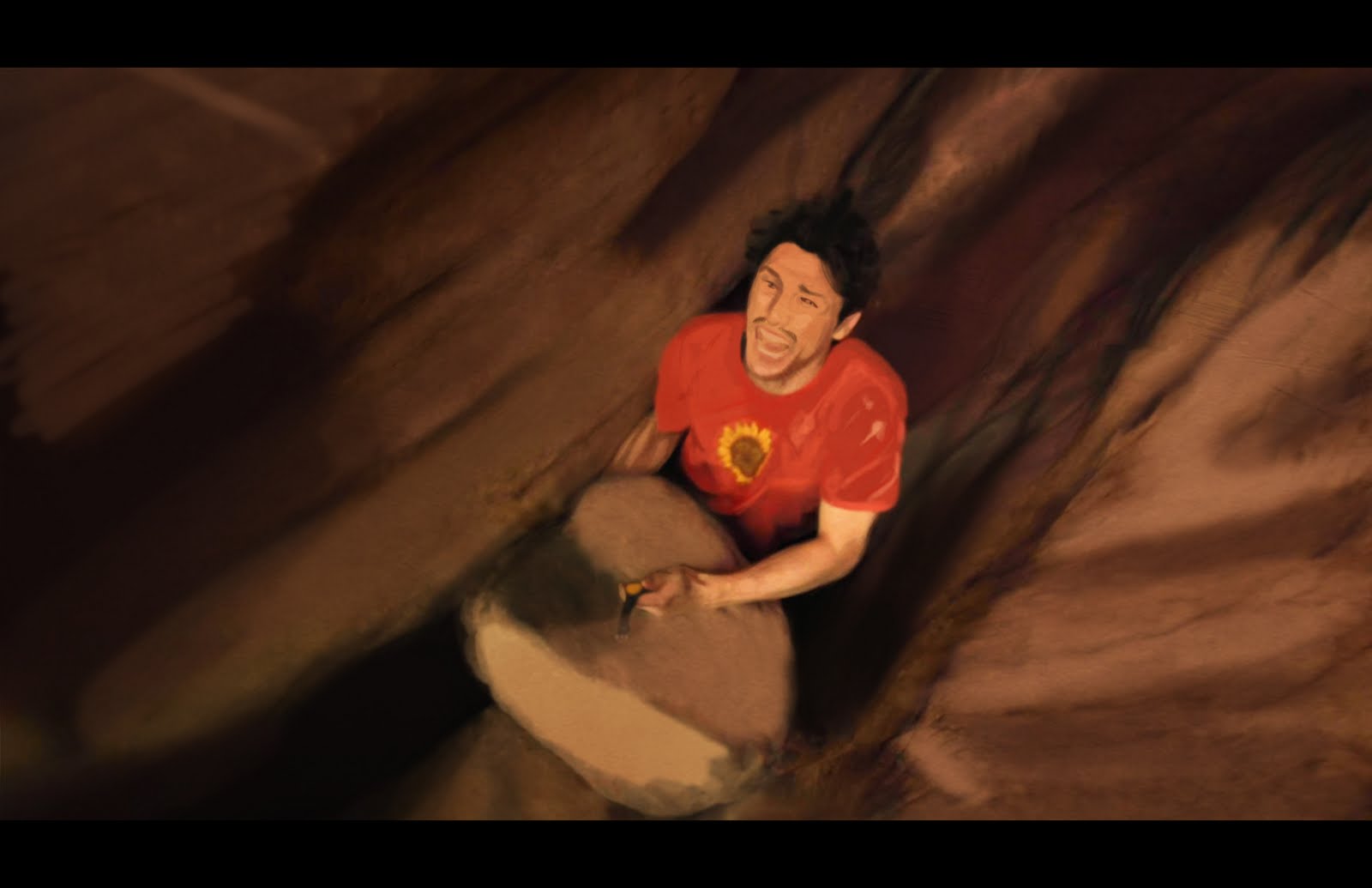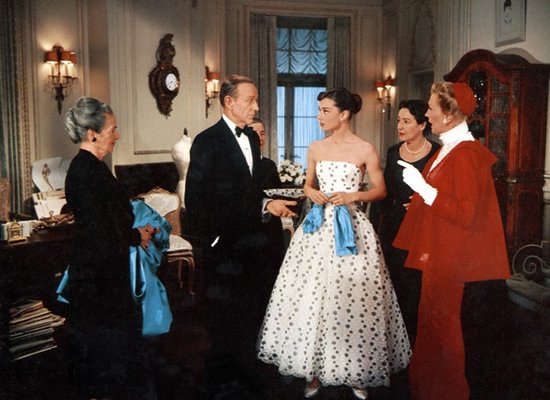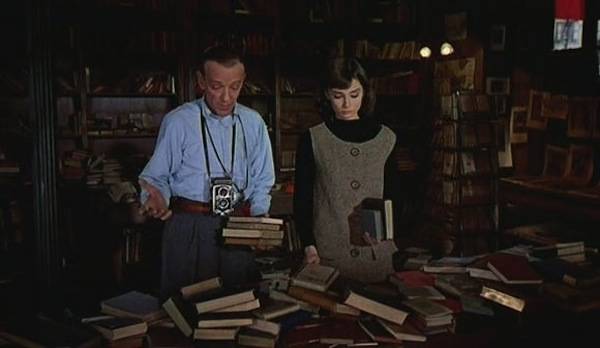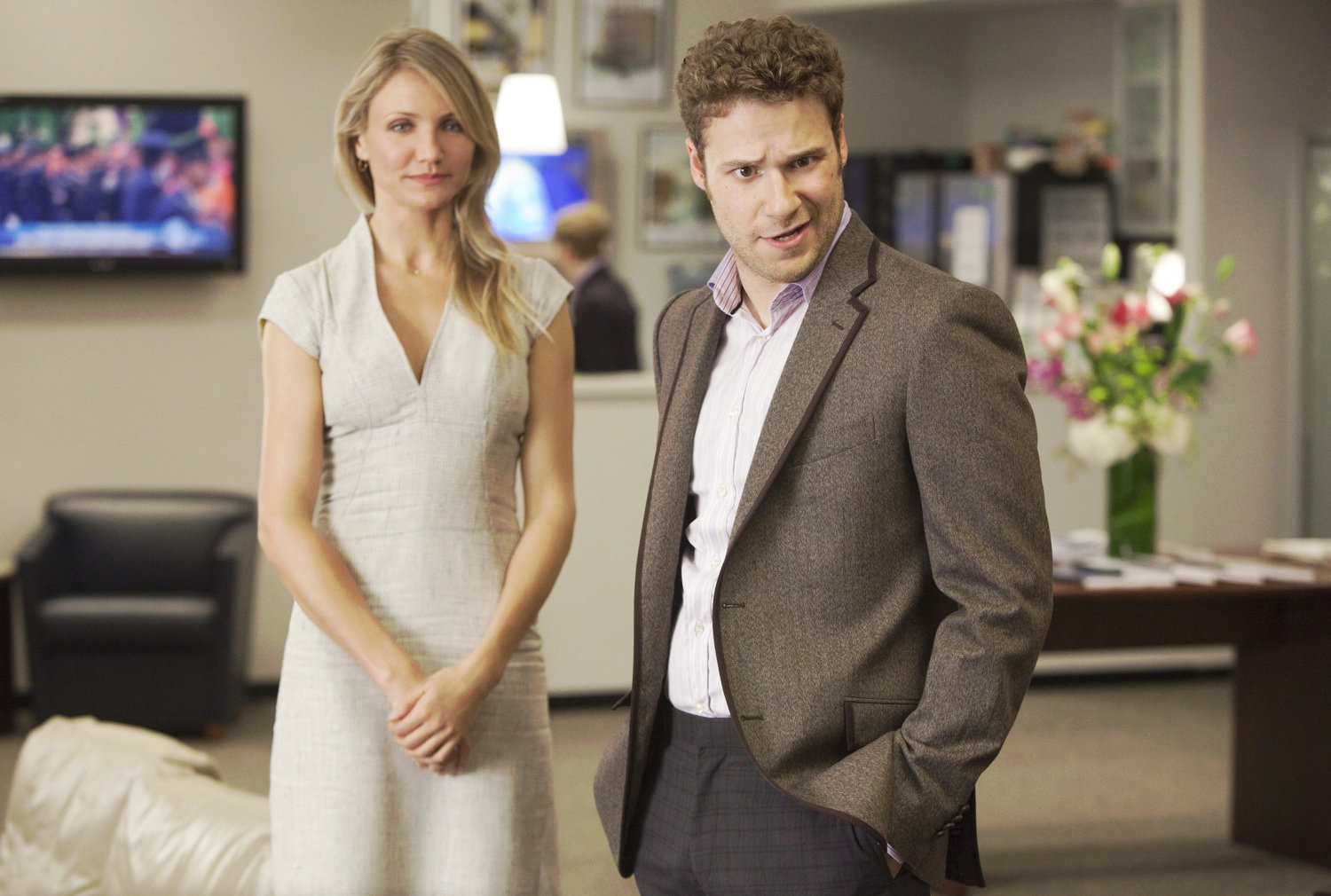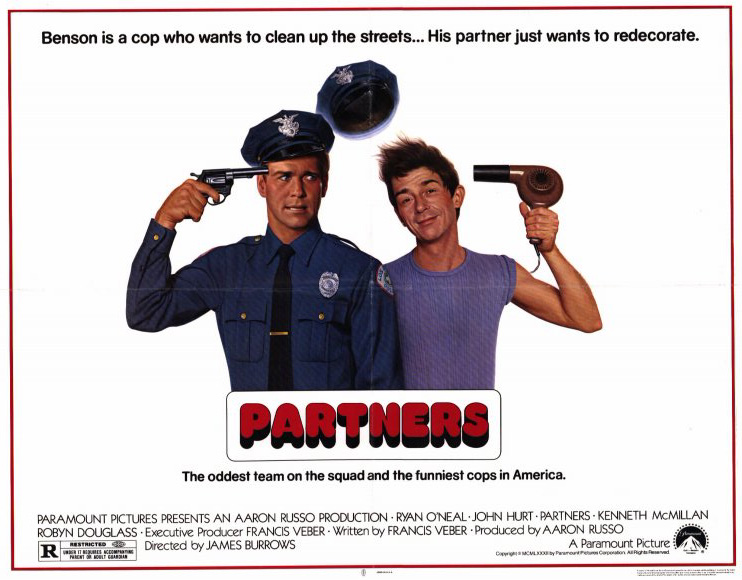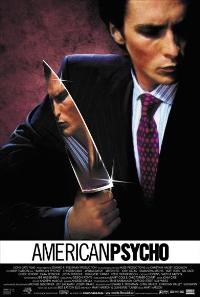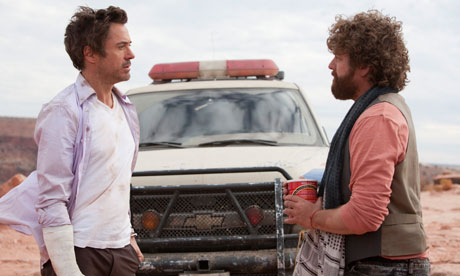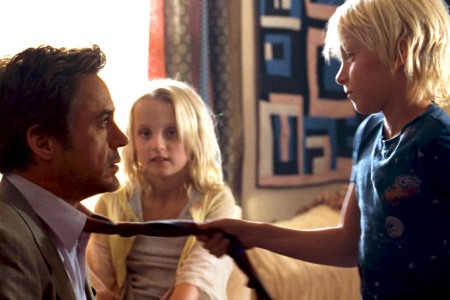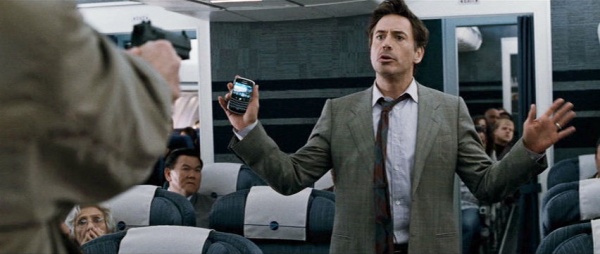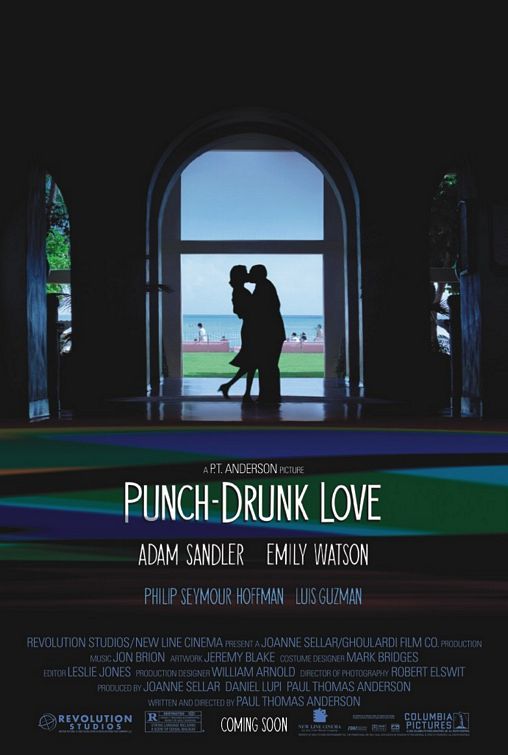
Writer-director Paul Thomas Anderson has always worked off the cinematic beaten path and never more so than with 2002's Punch Drunk Love, a one of a kind movie experience that is part crime drama, part character study, part romance, and part absurdist nightmare, taking the viewer on a bizarre and sometimes confusing journey and never apologizing for it.

This is the story of one Barry Egan, the owner of a small novelty sales business who is terribly lonely, socially inept, and prone to explosive fits of violence when provoked, partially from living under the shadow of seven sisters and partially from his inability to accept that life doesn't always happen as he might like. The movie brings us into the middle of Barry's world as we find him making a call to a phone sex line that goes horribly wrong and purchasing a huge amount of pudding cups in order to take advantage of a promotional deal that will afford him a lot of frequent flyer miles even though the man has never been on a plane in his life. And in the middle of all of this, Barry finds himself drawn to a co-worker of one of his sisters, who finds herself equally drawn to him.

This film fascinates primarily due to its severely damaged central character, who reminded me a lot of Travis Bickle in Taxi Driver, a man so lost in his own personal demons to the point where he can't escape them nor can he share them with anyone and is trapped in an existence that's emptiness seems to manifest itself in explosive fits of verbal and physical violence, but when pushed to a certain point, Barry does finally push back. Barry is so damaged that I did find myself wondering what this woman sees in him, but maybe she sees the need this man has to be taken care of and wants to be the one to do it. The film's creepily voyeuristic feel is another reason I found myself riveted to what was going on...because it felt like I wasn't supposed to.

Anderson took a calculated risk in the casting of Adam Sandler as Barry, but that risk paid off in spades, as Sandler turned in the finest performance of his career, proving that with strong writing and a skilled director to guide him, Sandler could produce more than the demented man-child which defined his career prior to this. Just like after seeing Will Ferrell in Stranger than Fiction, I challenge anyone who has hated Sandler's work prior to this film to give this film a look...Sandler's performance is full of power and pathos and will make you forget a lot of the silly films he has done in the past. Emily Watson creates an odd but workable chemistry with Sandler as the new woman in his life and Phillip Seymour Hoffman also scores as the sleazy mattress store owner who runs the crooked phone sex line that blackmails Barry. I also loved Mary Lynn Rajskub as Barry's sister and Watson's friend.

Anderson's direction is in your face and includes some striking camera work that aids greatly in the film's voyeuristic feel and some strikingly original choices in terms of music that help to make this a truly original movie experience. 8.5/10
Last edited by Gideon58; 4 days ago at 01:34 AM.
